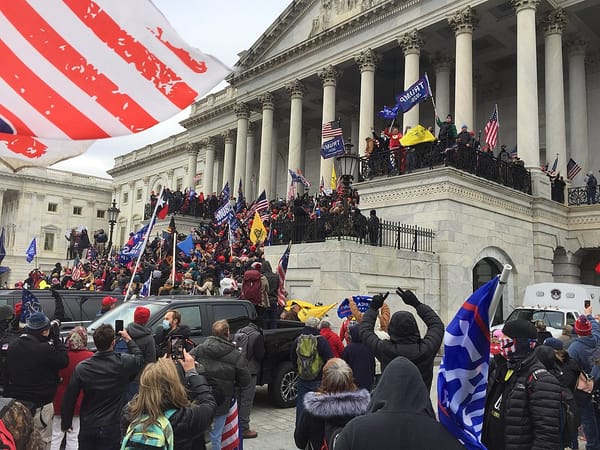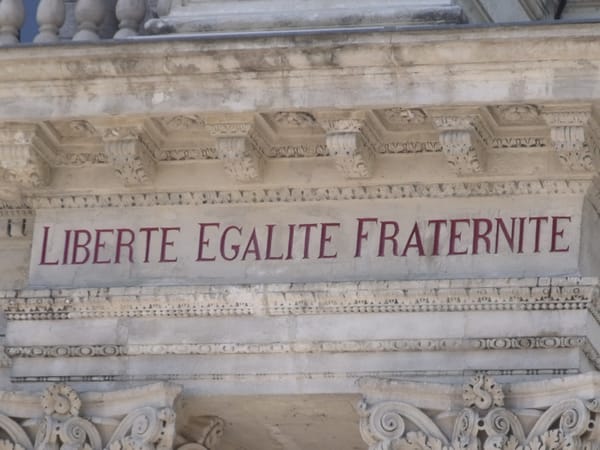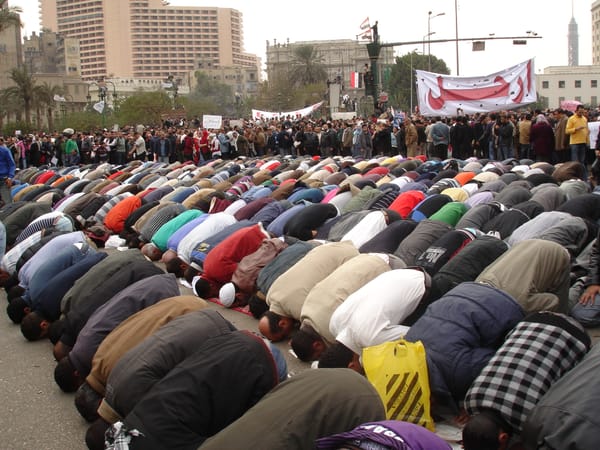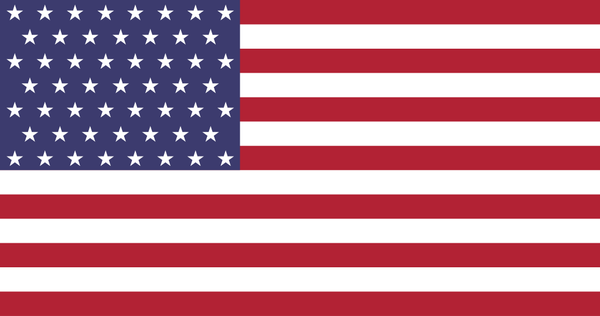The Lost Opportunity in Iran
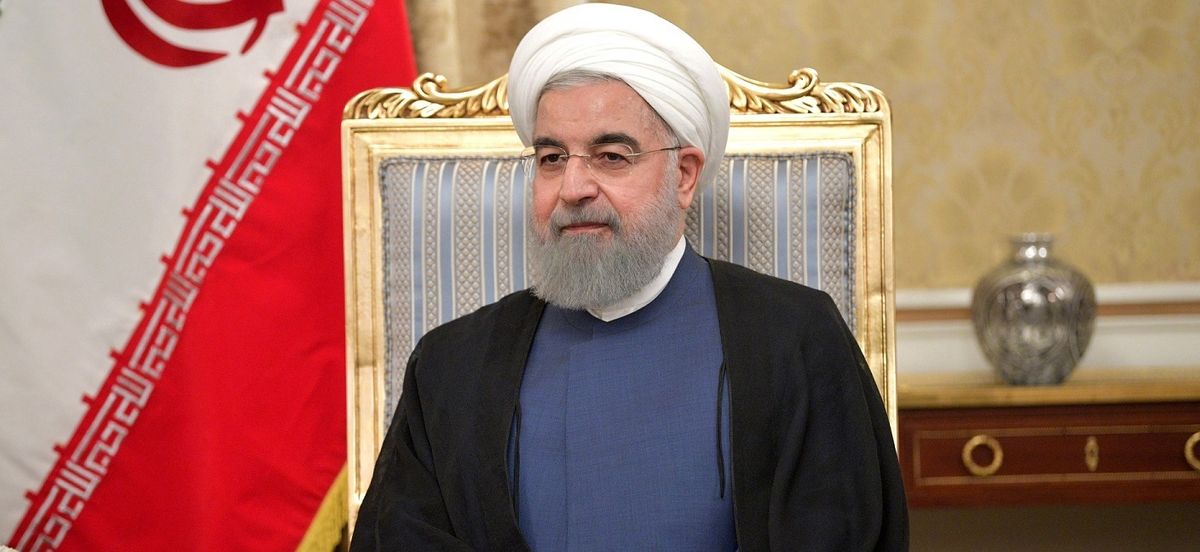
The assassination of Iranian General Qassem Soleimani by US drone strikes on Friday, the third of January, sent a shockwave across the world. The United States, leading superpower in the world, had murdered a remarkably high ranking leader from a nation it was not at declared war with. While President Donald Trump railed about the recent embassy attacks from pro-Iranian forces and mentioned the idea that the strike was to stop a threat that was “imminent”, no threat has been as of yet announced or proven. The consequences of such an aggressive and blatant use of violence will be felt at some time, at some point, one way or another.
The response has been severe and universal, ranging from Iran to Iraq, the European nations and finally, America. Even Israel emphatically does not want to be associated with the attack. The universal condemnation of such an honorless attack on a high-ranking official of another country was followed by a bevy of alarming events across the region; parliamentary motions in Iraq, explosions around Baghdad from other aligned movements, one of the largest funerals for an individual in modern times, and most recently rockets fired at two American military bases in Iraq.
If we manage to come out of this without a full scale war breaking out in the near term—and there is no guarantee of that—the greatest loss will be deeper, longer term. For Trump entered office during the most promising moment in US-Iranian relations since the establishment of the Islamic Republic and has done nothing but squander that promise.
Hassan Rouhani, and what could have been for Iran and the world
The history of sanctions in Iran go back to the Jimmy Carter Administration in America; after the fall of the Shah, an American backed dictator, the relations between Washington DC and Tehran have never been the same. In the forty years since the Iranian Revolution and the fall of the Shah, from Carter, Reagan, and Bush to Clinton, Bush, and now Trump, the idea of isolating Iran through diplomatic and economic means has been the abiding theory.
Presumably, trying to suffocate Iran is premised on the idea that a nation suffering in political and economic isolation will one day come crawling to negotiate; a sort of Containment 2.0 if you will. While Europe would attempt to mend relations through the Paris Agreement of 2004, America would maintain Iran as part of the new “axis of evil”. It was not until the Obama administration that real American progress on the Iranian front could be created; he had a willing partner in his second term in office, with the victory of Hassan Rouhani in the 2013 Iranian Presidential Election.
Rouhani, while an original follower of Ayatollah Ruhollah Khomeini, has always explored possibilities for Iran’s future position in the international community. As part of the Moderation and Development Political Party of Iran, he has never been shy in professing useful progressive ideas. Rouhani was chief negotiator for the Paris Agreement on nuclear development and the President when the later “nuclear deal” was reached, He is the most committed of any Iranian leader since Mohammad Mossadegh to establishing healthier relations with the West. As President, Rouhani has been given relative carte blanche in his foreign policies due to his history with the Iranian Islamist Movement; his intellect, faith, and vision are not in question, even by an Ayatollah.
Upon coming to power as President in 2013, Rouhani quickly moved to cash in the leverage that his more hardline predecessors had worked to create. Iran’s nuclear program and the various Quds Force actions are meant to create leverage as much as anything else; trading threats of nuclear, territorial or domestic political innovations as a way to get a seat at the international economic table. With the “nuclear deal” in place, there are fewer reasons for needing leverage in theory; Iran can grow and thrive, socially and economically, while the powers that sit in Brussels and Washington do not have to worry about territorial expansion or wide scale destruction on a nuclear scale.
The diplomatic concept is quite simple; when Iran is brought into the community of nations, its policies will become more moderate towards those former despised nations over time. Greater economic integration strengthens these bonds substantially. Economic success on the heels of these policies strengthens moderate and progressive clerics politically; the populace is moderated and becomes more progressive as a direct result. This, in time, creates less conflict between American and Iranian interests around the region and world; less violence and hostility, with more of the benefits of open global economics. The slippery slope the President has led Iran and America on since he began detaching the United States from the Iran Nuclear Deal is both dangerous and accelerating rapidly.
Rouhani’s first term saw success great enough to carry him to a second term, and the hardliners in Iran made little headway against Rouhani in the 2017 elections. But with the assassination of Soleimani, the odds of a hardliner victory the next time around have gone up substantially.
The long term damage of the Trump administration
What has moderation with the West gotten Iran? And where has it gotten them? The answers to both are in the negative; nothing and nowhere further than where they were prior to the nuclear agreement. The only thing that has changed is that they are years down the road and have bargained away the nuclear leverage that they had worked up. This is certainly no way to cultivate amicable relations with a volatile power with deep seated historical distrust.
With the death of Qassem Soleimani, Rouhani’s job has been made harder by America; Iran’s hardliners now have greater leverage in pushing the current President further right, if not overtaking his party entirely. Capturing the Iranian Presidency away from an heir to Rouhani’s more moderate administration and thought pattern could spell the end of any serious diplomacy between Iran and the West for another presidential cycle at best. Even if Trump is removed or voted out in November, the fate of the relationship between these nations may already have been sealed.
When one looks upon the history of Iran during the forty years since the Islamic Revolution, this current patch is quite troubling. Within the historical context, it becomes clear that the opportunity to create a more unified, less dangerous world was forfeited by America when the Trump administration decided to unilaterally, and without cause, withdraw from the Nuclear Deal. That provocation created tension, tension that moved Iran back firmly toward the fringe of the international community, with no easily visible means to move forward positively as a nation.
By doing this, escalating tensions further until the assassination of Qassem Soleimani, President Trump has handicapped both America and Iran simultaneously; he has made Hassan Rouhani appear to be dense for trusting America, empowering reactionaries and theocratic fascists within Iran. Meanwhile, at home, Trump’s behavior leaves America as the aggressors in a conflict that he himself gave birth to; casting America in an all too familiar light as selfish jingoists and hypocrites does nothing for its diplomatic capabilities moving forward.
In the absence of some grand event of reconciliation, America and Iran are on a crash course for war and bloodshed with one another. If not now, then in months or years to come; the provocation of illegal assassination of such a high profile official is likely too great an international menace to be overcome. Would a new American president be able to mitigate the conflict if he were to attain power and act with remarkable haste? In the best case scenario, perhaps, but our credibility for developing better relations has already been spent.
With ten long months before the election, and over a year before any potential successor to Trump would be inaugurated, it is imperative that we hold our Senators and congressmen’s feet to the fire. Only they have the power to tie the president’s hands in the meantime.
Featured image is Hassan Rouhani

